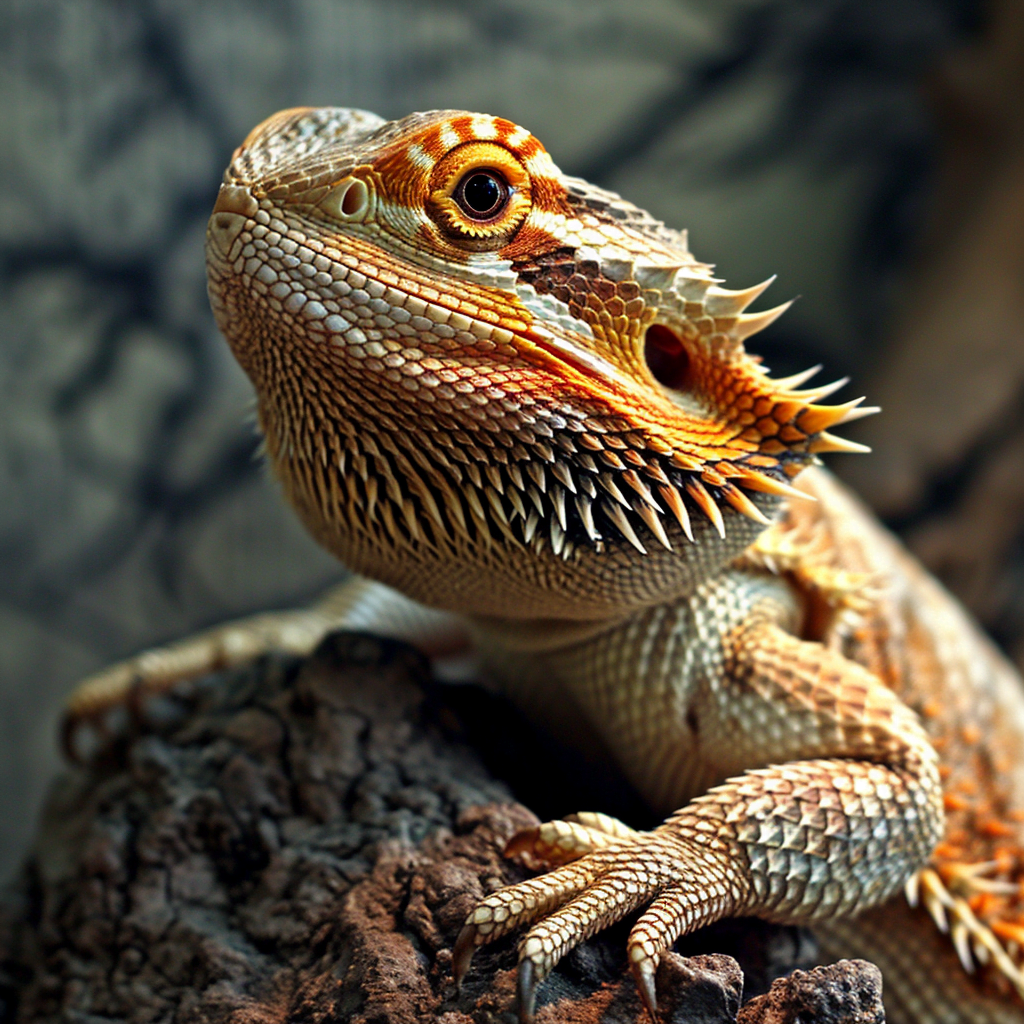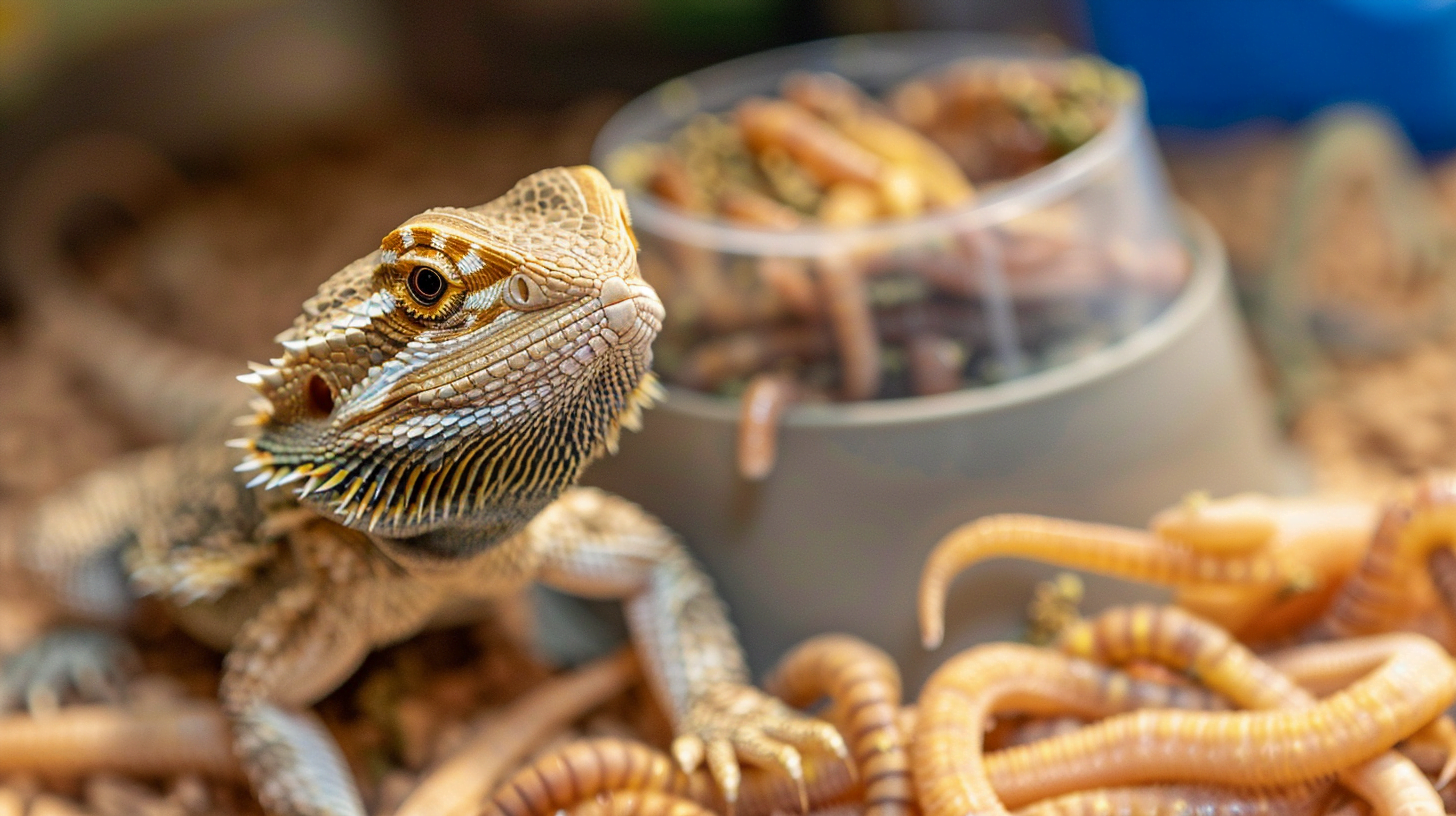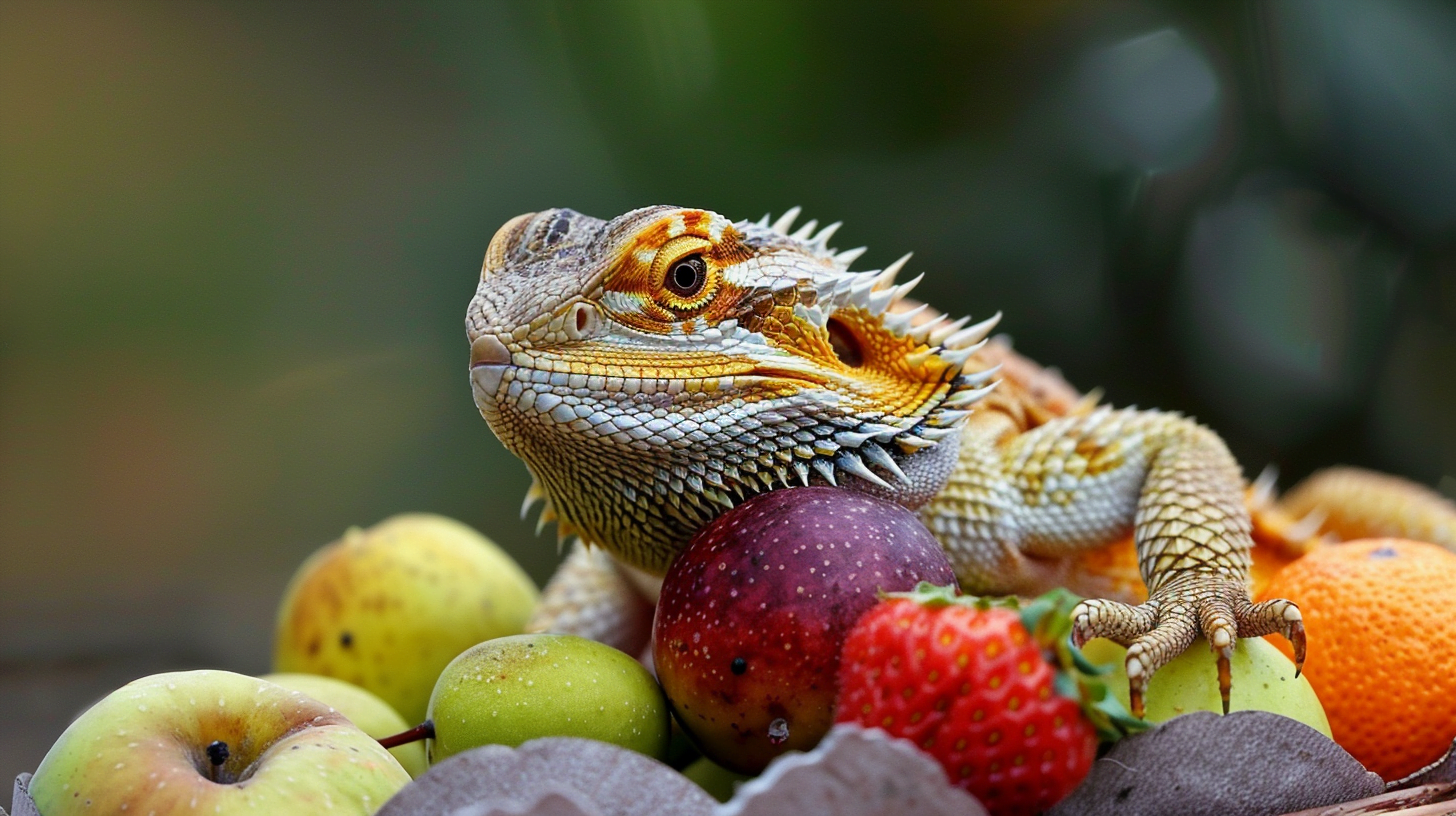Has your bearded dragon started looking darker lately? At first glance, this color change may appear worrying. However, in many cases, minor darkening of a beardie’s skin and scales is completely normal.
This article “Why Is My Bearded Dragon Darker?” will explore the common reasons a bearded dragon can turn darker and what you can do about it. With proper care and monitoring, you can get your beardie’s bright colors back in no time.
Normal Color Changes in Bearded Dragons
Bearded dragons naturally tend to darken some as they age. When they are babies and juveniles, their colors are often vivid and bright. But adult beardies usually develop darker, more muted tones.
Your dragon’s coloration can also darken temporarily based on temperature. Bearded dragons are cold-blooded, so they rely on external heat sources to regulate their body temperature. When your bearded dragon’s habitat is too cool, he will appear much darker in an attempt to absorb more heat. The darker colors help raise his body temperature.
Here are some examples of normal temperature-related color shifts:
- Darker in the morning before basking lights turn on
- Darker at night when temperature drops
- Darker during brumation as metabolism slows
Additionally, female bearded dragons tend to maintain a slightly lighter coloration than males. So if your dragon has recently gone through a major shed, the new skin may reveal a more mature coloration.
Signs of Stress Darkening in Bearded Dragons
While some darkening is normal, a sudden significant shift to black beard and skin may signal your bearded dragon is stressed.
Causes of stress darkening include:
- Improper habitat temperatures – too hot or too cold
- Relocation to a new vivarium
- Aggression from a tankmate
- Loud noises or excessive handling
- Pain or injury
You’ll also notice behavioral signs of stress like:
- Puffing out the beard and opening the mouth wide to appear larger
- Arm waving
- Head bobbing
- Attempts to flee or hide
Luckily, this stress-related coloring is only temporary. Correct the source of stress and your bearded dragon’s bright hues should return once he feels secure again.
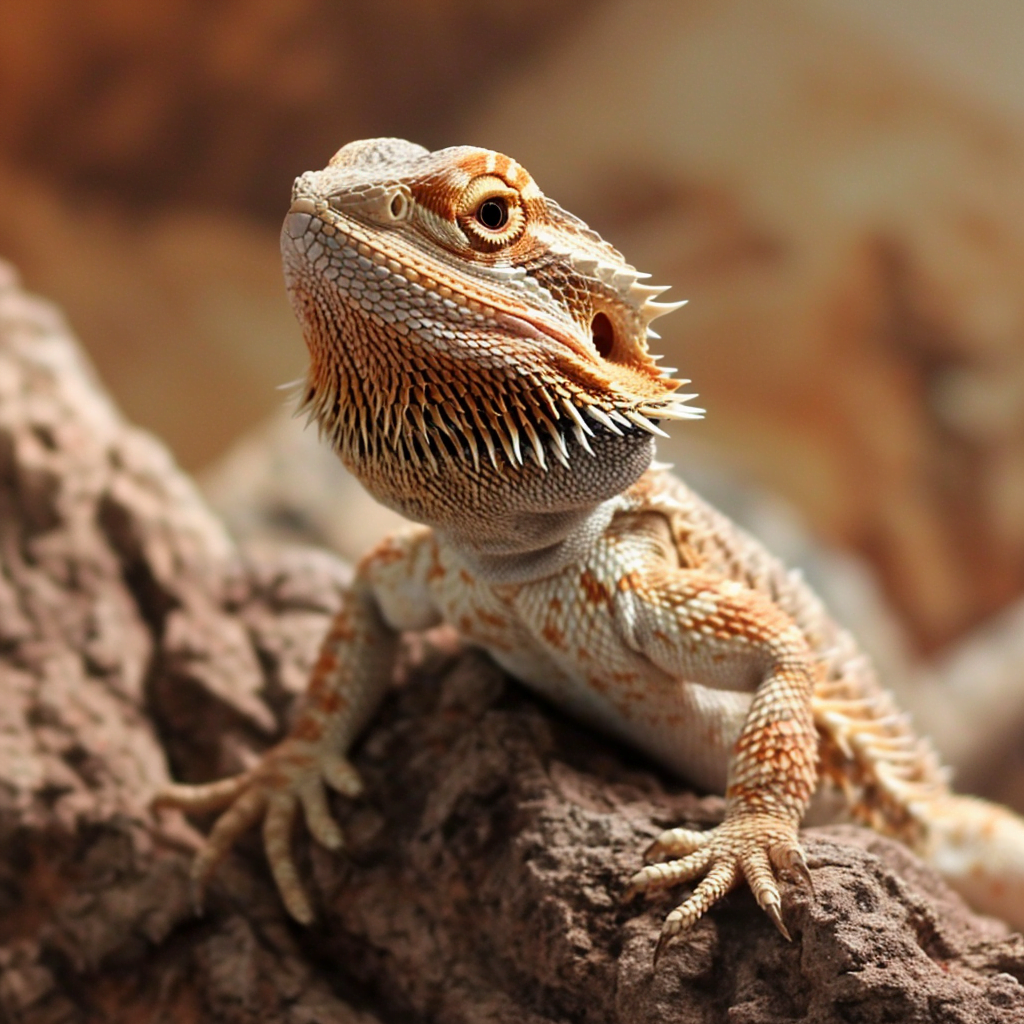
Poor Hydration Can Lead to Darkening
Without adequate water, a bearded dragon’s blood thickens and circulates more slowly. This causes the skin to take on a darker bluish-black appearance.
Signs your bearded dragon may be dehydrated include:
- Sunken eyes
- Loose wrinkled skin
- Lethargy and decreased appetite
- Dry sheds
To boost hydration, mist your bearded dragon several times per day and provide a water bowl he can soak in. Also feed juicy fruits and vegetables with high water content.
Incorrect Lighting or Nutrition
For vibrant colors, bearded dragons need full spectrum lighting that provides UVB rays. Lack of UVB leads to decreased vitamin D3, which can cause darkening skin and appetite loss.
Check that your UVB bulb is functioning and less than 8 months old. Replace UVB bulbs annually per manufacturer recommendations.
Nutrition also plays a key role. Without vitamin A from properly gutloaded feeder insects, plants, and supplements, your bearded dragon may start appearing darker.
Shedding Can Temporarily Darken Color
A beardie’s skin naturally darkens right before a shed. This is called the “blue phase” of shedding where the dull blue skin separates from the new brighter layer underneath.
To help your dragon shed properly:
- Provide a shallow soaking dish
- Spray the tank 2-3 times daily for increased humidity
- Massage loose skin gently with a soft brush
Once the old skin fully sheds off, your dragon’s vivid coloring will return.
WARNING Signs of Serious Health Issues
While slight darkening is often harmless, a sudden shift to pitch black may indicate a severe health problem.
Seek immediate vet care if your bearded dragon displays these symptoms:
- Rapid darkening over the entire body
- Weakness and lethargy
- Loss of appetite
- Swollen limbs or tail
- Visible bone deformities
Rapid dark skin changes like this can be a sign of metabolic bone disease from nutritional deficiencies, kidney/liver failure, or other critical conditions. Only a qualified reptile vet can diagnose and treat serious illnesses.
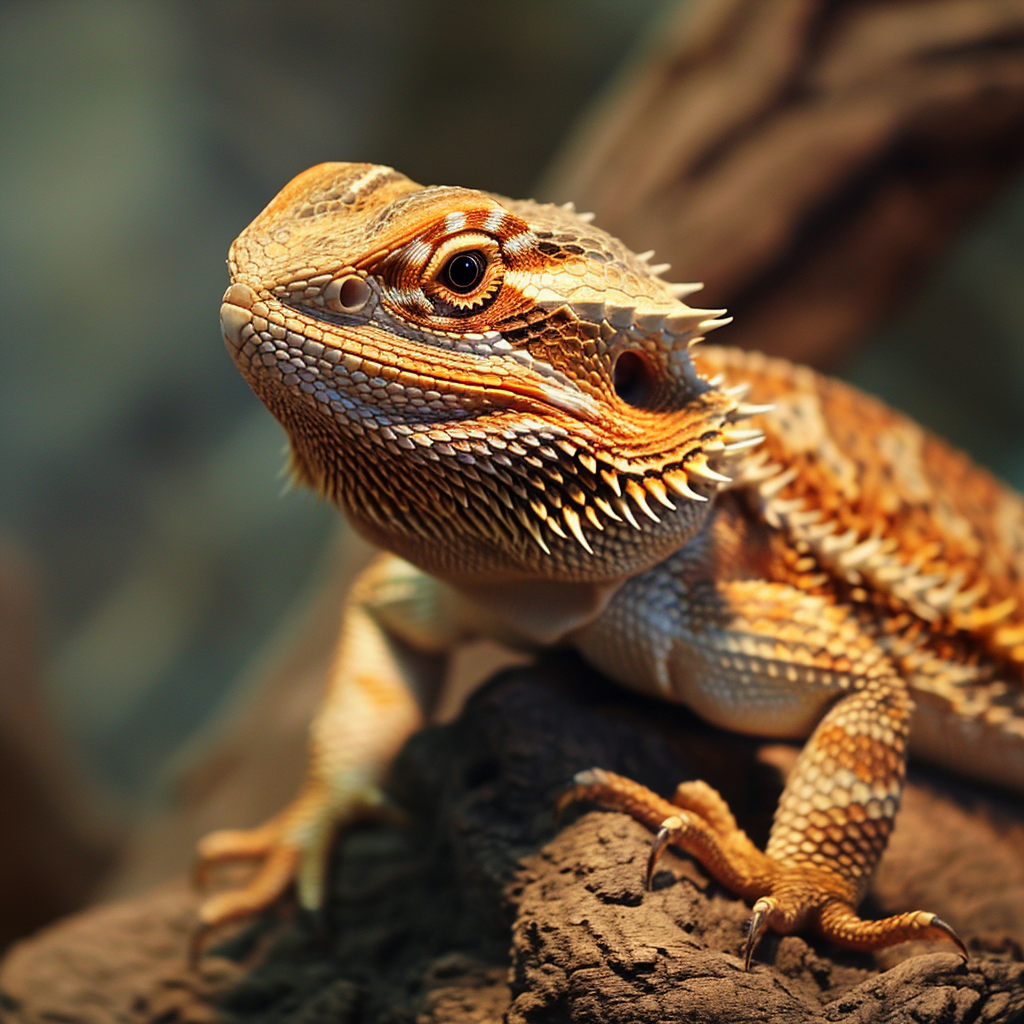
Conclusion
Some variation in your bearded dragon’s skin tone is perfectly normal. But significant, rapid darkening may indicate health problems requiring attention.
Closely monitor any color changes and watch for other symptoms. Ensure your beardie’s habitat stays warm enough and make adjustments to nutrition and hydration as needed. Seeking prompt vet care is crucial if your dragon seems seriously ill.
With attentive husbandry and care, you can keep your bearded dragon’s colors vibrant. But never hesitate to call the vet if you have any concerns. A healthy dragon shows off gleaming bright scales.
